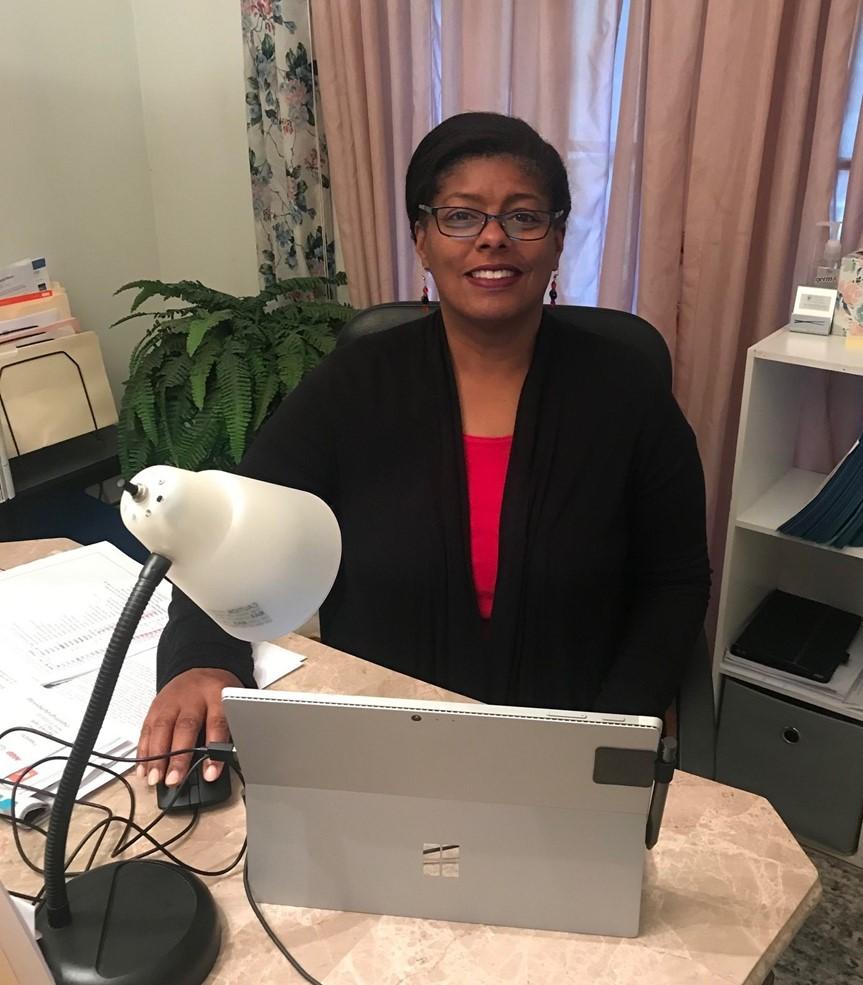
4 minute read
Creativity Applied to COVID Response is a Success for House of Delegates
Written by Sharon Crouch-Steidel, Deputy Clerk for Information Technology and Anna Mulvany, Help Desk Administrator
Beginning mid-March, Speaker of the House Eileen Filler-Corn and Clerk of the House Suzette Denslow began addressing the continued function of the House of Delegates during what was then a potential health crisis. Staff members were given mobile devices to connect to their office computers so the legislation passed during session could make its way through the process of becoming law without missing a beat.
Advertisement
Virtual meeting applications including Teams and Zoom allowed the Clerk’s staff to meet at a moment’s notice, for any length of time, without thought to travel or risk to health.

Support and Finance staff still had to be on site to deliver mail and certify payrolls. Every precaution has been taken to protect these staff members and ensure a safe environment for them.

The House staff adapted to teleworking. Staff had to plan for the constitutionally-required Reconvened Session, knowing that we couldn’t have 100+ people in the House Chamber. This session occurs annually on the sixth Wednesday after the General Assembly adjourns and there was no option for postponing it, so we needed a plan and had about four weeks to devise it.
With the health of staff and members as the top priority, Speaker Filler-Corn chose to hold the 2020 Reconvened Session outside on Capitol Square under a tent cover.

Fully functional sound, video and voting systems had to be deployed in this outdoor area – only a portion of which was on a concrete sidewalk – the rest of the outdoor chamber was on grass. Each delegate was given a table, a voting machine, a microphone, and six feet of personal space. Masks and sanitizer were provided as well. New challenges not typical during a session were tackled, such as the lack of electricity (we rented a generator), dealing with the open air breeze that blew through the tent (we were primarily paperless, which helped), and addressing the problem of electric cords being dislodged – causing sound and electronic outages.

Staff set up the Siegel Center as a Chamber over several days, and the House met for a four-hour session on August 18. House IT Development staff created a custom voting system that was used. The House voted on a change to the 2020-2021 House Rules to allow future sessions of the House to be held remotely. Thus, more planning commenced to prepare for remote floor sessions and remote committee meetings. The 100 delegates had to adapt to legislating in the new virtual world, and the virtual meetings had to be implemented in a way that maintained transparency in the process, allowed for citizens to engage as appropriate, and kept staff and members safe.


Using the audio-visual (AV) infrastructure in House committee rooms and the House Chamber, equipment was reconfigured to connect Zoom and Teams meetings to the House sound and video streaming system. House IT Development staff created an application that allows citizens to submit written testimony and sign up to speak at committee meetings. House floor sessions were held virtually, with only the Speaker, Clerk and a few Clerk’s Office staff physically present in the House Chamber. The other members participated via Zoom.

Throughout the past eight months, business processes have adapted. Staff have figured out ways to proof legislation via Teams meetings. Staff have developed ways to allow citizen input safely and without disruptions. Staff meetings are all virtual.

The new sounds and sights of this “new normal” are the occasional jingle of a dog collar, the spotting of a cat’s tail or ears going by a video screen and the appearance of children on screen as staff and members alike strive to balance their work with the at-home care and schooling of their children and grandchildren. Phrases like “Can you hear me” and “Please mute your mic” are spoken frequently. As we have worked through these issues and developed “out of the box” methods to conduct the people’s business, we’ve collaborated with others in a collective ‘we are in this together’ approach – comparing notes and sharing successes and failures with other public entities and state legislatures. What a difference eight months has made – we’ve learned a lot along the way, as we are now preparing for Regular Session in January. We are looking forward to the new challenges ahead. One thing is certain – change has come out of necessity and we will benefit long term from some of the lessons we have learned this year.

